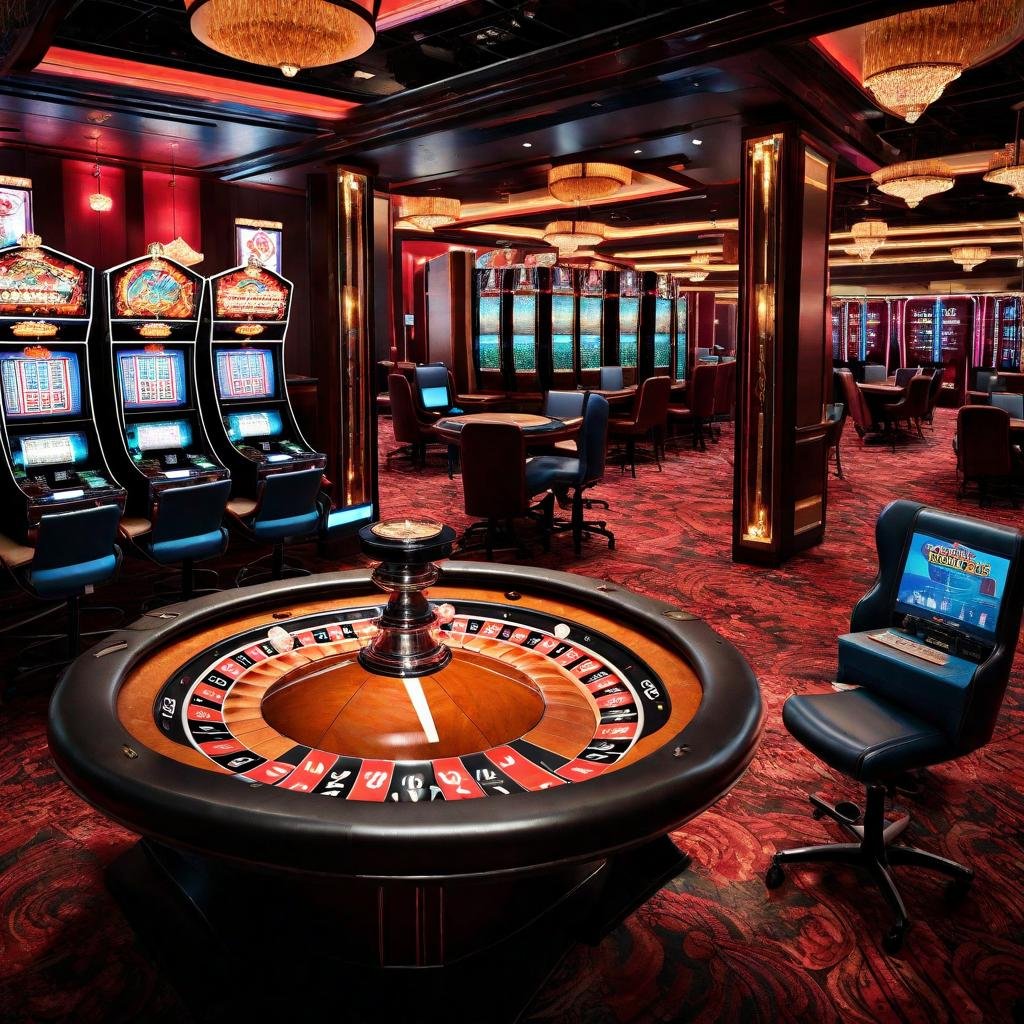
Casino experiences have fascinated players over the ages, progressing from easy diversions to sophisticated forms of entertainment that combine luck, tactics, and amusement. From the early beginnings of gambling in societies including the ancient societies of Mesopotamia and Rome to the glitzy corridors of contemporary casinos, the history of these games uncovers much about our nature and our connection with risk. As cultures have merged and innovation has progressed, casino games have changed, illustrating societal changes and developments in gameplay.
The initial iterations of gambling likely included simple games involving dice and wagering on the results of athletic contests. Over time, these early games grew into more complex games like card games, roulette, and the variety of slot games that fill the floors of casinos today. Every generation brought its unique rules, visual styles, and sociocultural significance. Today, casino games persist in evolving with the rise of online platforms, enabling players from all corners of the globe to participate in a common experience, further blending the traditional with the age of technology.
Early Roots of Casino Activities
Gambling games have roots that reach back to historical civilizations, where wagering was profoundly entrenched in social traditions and social customs. The initial known forms of gambling appeared in Mesopotamia around 3000 BC, featuring basic die games made from bone material. These early games laid the basis for more advanced betting activities, showing humans’ natural desire to pursue fortune and amusement through chance.
As societies evolved, so did their gambling interests. In ancient Chinese culture, around 2300 BC, objects were found that were similar to primitive basic versions of a lottery game. More structured forms of gambling arose in the ancient Roman civilization, where games of chance were a common pastime, often taking place in social gatherings. The ancient Romans developed multiple wagering games, which included dice and board activities, showing the widespread nature of gambling across various economic classes.
With the movement of ages, these primitive activities influenced the development of modern casino games. In the Middle Ages, playing card activities became prevalent in Europe, paving the way for the organized gaming venues we know today. The change from casual betting to formal gambling in taverns and personal homes marked a significant shift in how people engaged with games of luck, leading to the eventual establishment of casinos as dedicated places for betting.
The Emergence of Current Gambling Industry
The final 20th century marked a significant transition in the realm of gaming, propelled by technological progress and changes in cultural attitudes towards wagering. The emergence of computers and the World Wide Web revolutionized the way gamblers interacted with their preferred casino games. Online casinos emerged, allowing gamers to enjoy traditional table games like poker and 21 from the safety of their own homes. Ga179 This new online environment not only broadened access to gambling options but also attracted a younger demographic who found the comfort and diversity tempting.
As digital gambling gained traction, so did advancements in casino tech. The creation of sophisticated programs and graphics transformed classic casino games into engaging adventures. Players could now interact with authentic dealers through live streaming, importing the atmosphere of brick-and-mortar casinos directly into their living rooms. This fusion of in-person play with digital interfaces created a novel combination that elevated the social aspect of playing, allowing it possible for individuals to engage and compete with fellow gamers around the world.
Moreover, the emergence of mobile gaming substantially changed the casino landscape. With the ubiquitous use of smartphones and tablets, gamblers can access their favorite gaming options at any location, whenever. Mobile apps offer a vast array of options optimized for mobile screens, catering to the fast-paced daily life of modern users. This availability has led to rising engagement in gambling, driving the rapid expansion of the gaming industry. As a result, the prospects of gambling continues to evolve, adjusting to technological advancements and shifting player expectations.
The Impact of Technology on Casino Games
The evolution of technology has greatly changed casino games, enhancing the overall gaming experience for players around the world. As the internet emerged, online casinos emerged, allowing players to enjoy their favorite games from the comfort of their homes. This shift not only made casino games more accessible but also expanded the variety of games offered, as online platforms could host numerous variations of traditional games without the physical constraints of brick-and-mortar establishments.
The rise of mobile technology further revolutionized the casino gaming landscape. With the proliferation, players now have the ability to engage in casino games anytime and anywhere. This flexibility has led to the creation of dedicated mobile applications and optimized websites that provide seamless gaming experiences. Additionally, advancements such as live dealer games have delivered the genuine feel of a casino into players’ homes, connecting between physical and online gaming.
Furthermore, advancements in AI and virtual reality are paving the way for the next generation of casino games. AI enhances game design and player interaction, creating customized experiences based on user behavior and preferences. Meanwhile, virtual reality provides immersive environments where players can interact in a simulated casino setting, making the gaming experience more engaging and realistic. As technology continues to evolve, the future of casino games seems bright, filled with endless possibilities for advancements and entertainment.
